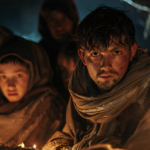The television industry has always been a platform for innovation shaping cultures and influencing generations. However, the increasing dependence on reboots, remakes, and formulaic storytelling has raised concerns about the decline of originality. While nostalgia plays a role in the appeal of recycled ideas this trend often overshadows fresh concepts that could redefine the medium. In this article, we’ll dive into the challenges facing Originality in Television Shows the factors contributing to the reliance on familiar tropes and how the industry can reclaim its creative edge.
Why Originality Is the Heart of Great Television
Originality drives progress in storytelling. It’s what captivates audiences, introduces them to new worlds, and challenges perceptions. Unique television shows often leave lasting cultural impacts, pushing the boundaries of imagination and becoming timeless classics. Original series like Stranger Things, The Sopranos, and Fleabag gained widespread acclaim for their inventive storytelling and bold ideas, proving that originality is a key ingredient in compelling television.
How Originality Benefits Audiences and Creators
Audiences crave novelty. Unique narratives allow viewers to explore fresh perspectives and immerse themselves in new experiences. For creators, originality fosters innovation and artistic growth, encouraging them to take risks and push boundaries. Without originality, television risks becoming repetitive and uninspiring.
The Reboot Phenomenon: Why Familiarity Sells
Reboots and remakes dominate today’s television landscape. From updated versions of Gossip Girl to the darker retelling of The Fresh Prince of Bel-Air as Bel-Air, networks and streaming platforms consistently rely on established franchises. This trend can be attributed to the built-in fanbases these shows bring, which guarantee a certain level of viewership.
The Role of Nostalgia in Reboots
Nostalgia is a powerful marketing tool. Familiar characters and storylines evoke fond memories, creating a sense of comfort for audiences. This emotional connection often drives viewership, making reboots an attractive option for producers. However, this approach often limits creative innovation, as the focus shifts to recreating past successes rather than crafting something new.
The Financial Security of Familiar Concepts
Producing a reboot or remake is often seen as a safer investment than developing an entirely new series. Networks can capitalize on the existing popularity of a franchise, minimizing the risk of failure. While this strategy can generate short-term success, it often comes at the expense of long-term cultural relevance and originality.
The Challenges Facing Original Content in Television
Creating original television shows is no small feat. Writers and producers face numerous obstacles, from navigating industry expectations to competing for audience attention in an oversaturated market. These challenges often discourage risk-taking, leading to a reliance on tried-and-true formulas.
Industry Pressure for Instant Success
Television networks and streaming platforms are under constant pressure to deliver hits. With so much content available, capturing and retaining audience attention has become increasingly difficult. As a result, many companies prioritize projects with proven success, leaving little room for experimental or unconventional ideas.
The Impact of Streaming Wars
The rise of streaming platforms like Netflix, Hulu, and Disney+ has intensified competition in the entertainment industry. To attract subscribers, these platforms often prioritize quantity over quality, churning out content at a rapid pace. This approach can dilute creativity, as producers opt for safe, marketable ideas rather than taking risks on innovative storytelling.
The Endless Possibilities of Original Storytelling
Despite the challenges, the potential for original storytelling in television remains vast. With over 90 film and television subgenres, as described by StudioBinder, creators have countless opportunities to explore new ideas. Whether it’s blending genres, highlighting underrepresented voices, or experimenting with unconventional formats, originality can breathe new life into the medium.
Breaking Genre Boundaries
Original television shows often thrive by challenging traditional genre conventions. Series like Westworld and The Mandalorian successfully blend elements of science fiction, westerns, and drama to create something entirely unique. This willingness to experiment allows creators to push the limits of what television can achieve.
Highlighting Diverse Perspectives
Diversity and representation play a crucial role in fostering originality. Shows like Pose and Insecure have broken new ground by telling stories from perspectives that were previously underrepresented in mainstream media. By embracing diverse voices, the industry can create more inclusive and innovative content.
The Power of Experimental Formats
Innovative formats and storytelling techniques can also set original television shows apart. Anthology series like Black Mirror and American Horror Story challenge traditional episodic storytelling, offering viewers a fresh experience with each episode or season. These experimental approaches demonstrate the potential for originality to redefine the medium.
Audiences as Gatekeepers of Originality
While industry factors play a significant role in the prevalence of reboots and remakes, audiences also bear some responsibility. Viewer demand influences what content gets produced, and widespread support for original ideas can encourage networks to take more creative risks.
Supporting New Ideas
Audiences have the power to shape the television landscape by actively seeking out and supporting original content. By tuning into innovative series and spreading the word, viewers can demonstrate their appreciation for creativity and inspire networks to prioritize originality.
The Role of Social Media
Social media platforms have become powerful tools for amplifying original content. Positive buzz and word-of-mouth can help lesser-known series gain traction, proving that audiences have a direct impact on a show’s success. By sharing and promoting unique shows, viewers can help foster a culture of originality.
The Future of Originality in Television
The future of originality in television depends on a collective effort from creators, networks, and audiences. By embracing creativity, taking risks, and supporting fresh ideas, the industry can continue to evolve and thrive. Originality has the potential to redefine the medium, offering audiences stories that inspire, challenge, and entertain.
Encouraging Collaboration and Experimentation
Collaboration among creators from diverse backgrounds can lead to groundbreaking ideas. Networks and streaming platforms should prioritize projects that encourage experimentation and innovation, even if they carry some risk. By fostering a culture of creativity, the industry can unlock new possibilities for storytelling.
Balancing Nostalgia with Innovation
While reboots and remakes will likely remain a part of television, striking a balance between nostalgia and innovation is key. By reimagining familiar concepts in fresh and meaningful ways, creators can honor the past while paving the way for the future Originality in Television Shows.
Conclusion
Originality in Television Shows is more important than ever. While the rise of reboots and remakes may cater to nostalgia and financial security, the true magic of television lies in its ability to surprise, challenge, and inspire. By supporting original ideas, embracing diverse perspectives, and pushing creative boundaries, the industry can reclaim its innovative spirit and continue to captivate audiences for generations to come Originality in Television Shows.
FAQs
Why are so many TV shows being rebooted?
Reboots appeal to nostalgia and offer a safer financial investment for producers, as they rely on established fanbases.
What makes a TV show original?
An original TV show introduces fresh ideas, unique storytelling, and innovative concepts that stand out from existing content.
Can reboots ever be as good as the original?
Reboots can succeed if they bring a fresh perspective or meaningful updates, but they often struggle to capture the charm of the original.
How can audiences support originality in television?
By watching and promoting innovative shows, audiences can influence networks to invest in fresh, creative ideas.
Why do networks avoid taking risks on original content?
Original projects involve greater financial risk, as their success is uncertain compared to established franchises with loyal audiences.
What’s the future of originality in television?
The future depends on collaboration, embracing diversity, and striking a balance between nostalgic projects and groundbreaking ideas.







